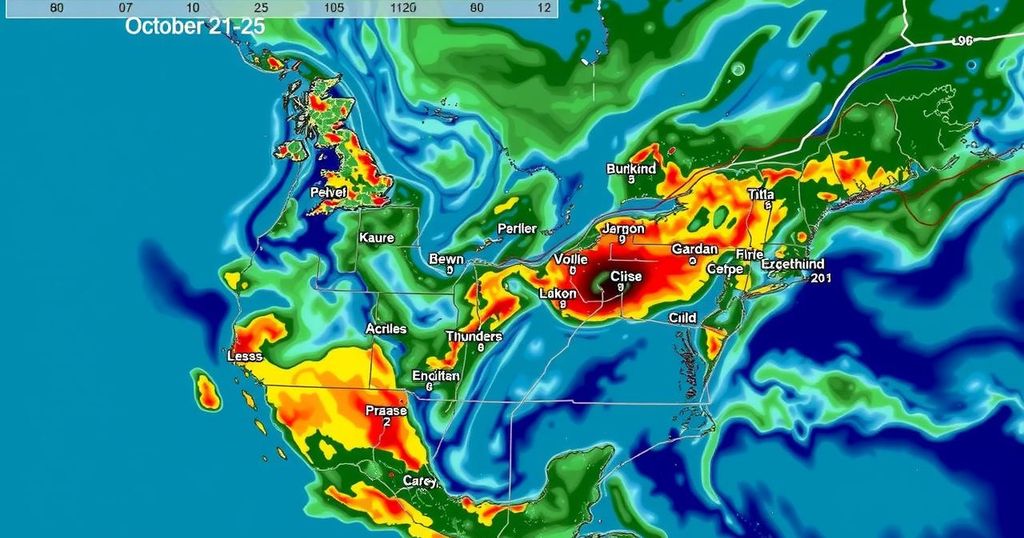This week’s climate news highlights that over 80% of nations missed the deadline for biodiversity plans ahead of COP16, while a UN report warns of expected global warming exceeding 3C if emissions cuts are not significantly improved. Typhoon Trami caused at least 14 fatalities in the Philippines, and NOAA reported the largest global coral bleaching event on record, affecting a vast majority of coral reefs.
This week provided crucial updates on climate-related issues, emphasizing the urgent situation regarding biodiversity, greenhouse gas emissions, extreme weather events, and the ongoing mass coral bleaching that is affecting global ecosystems. Over 80% of nations missed the submission deadline for biodiversity plans crucial for the upcoming COP16 summit in Colombia, with only a small fraction of nations fulfilling their commitments. A United Nations report warns that unless substantial emissions reductions occur, the world is on track for significant global warming exceeding the Paris Agreement targets. During the COP16 opening, the UN chief advocated for immediate action to address the alarming rate of biodiversity loss, as global participation remains suboptimal. Meanwhile, Typhoon Trami struck the Philippines, leading to casualties and considerable destruction, while the World Meteorological Organization declared the current coral bleaching event to be the largest on record, affecting a staggering percentage of coral reefs. The current environmental landscape presents a concerning portrait: of nearly 200 countries, over 80% have not submitted National Biodiversity Strategy and Action Plans (NBSAPs) required by the Convention on Biological Diversity (CBD) ahead of COP16 in Cali, Colombia. The Kunming-Montreal Global Biodiversity Framework (GBF), outlined at COP15, aimed to halt biodiversity loss, yet only 32 of the 193 CBD parties have met their obligations. Furthermore, the United Nations has indicated that global temperature increases could reach 3.1 degrees Celsius unless countries collectively reduce greenhouse gas emissions by approximately 42% over the next decade. Typhoon Trami has already resulted in 14 fatalities and the evacuation of tens of thousands, illustrating the harsh impacts of climate change, which have intensified the severity of such storms. Meanwhile, NOAA confirmed that the ongoing global coral bleaching event is unprecedented, with 77% of coral reefs affected.
The report reflects an ongoing crisis in global biodiversity and climate commitments. The Convention on Biological Diversity has established critical goals which nations promised to pursue, but the inadequate response highlights a lack of urgency or capacity among many states to address their ecological responsibilities. Rising temperatures and extreme weather conditions serve as a reminder of the direct consequences of insufficient climate action, as evidenced by Typhoon Trami’s impact on the Philippines. Additionally, the alarming state of coral reefs underscores the fragility of marine ecosystems, emphasizing the need for immediate intervention to protect them from further destruction.
In summary, the recent developments in climate news reveal a stark reality: world nations are failing to meet biodiversity goals that are essential for reversing ecological degradation. The consequences of such inaction are becoming palpable, as evidenced by extreme weather patterns and ecological crises such as the massive coral bleaching event currently underway. Immediate global commitment to reduce emissions and bolster biodiversity initiatives is imperative if we are to avert catastrophic climate changes and preserve vital ecosystems for the future.
Original Source: earth.org






